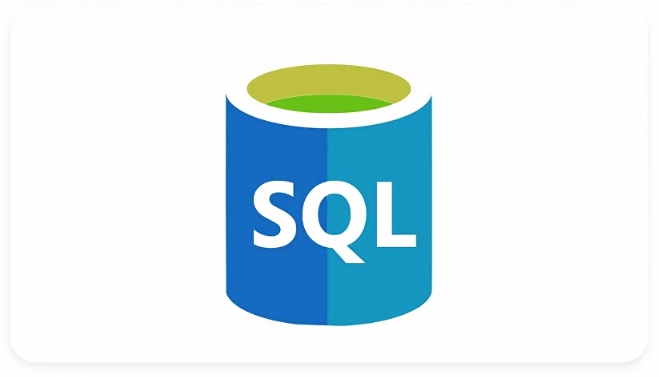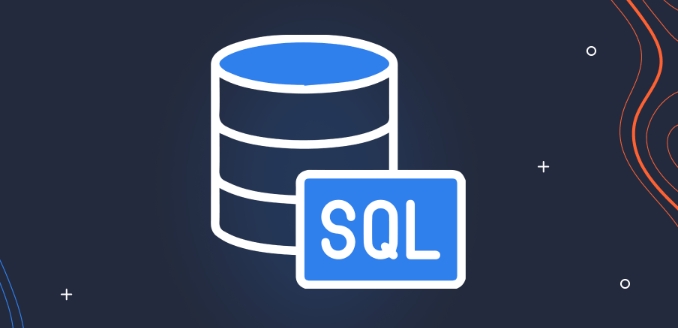Schema comparison and synchronization are crucial when database maintenance or upgrades, reasons include structural inconsistencies between environments, teamwork conflicts, and avoiding online risks. Common tools include: 1. dbForge Schema Compare for SQL Server, with comprehensive functions, supporting complex object comparison and dependency detection, suitable for enterprise-level maintenance; 2. Liquibase/Flyway, a code-based change management tool, supporting multi-database and DevOps processes; 3. Redgate SQL Compare, designed for SQL Server, with fast comparison speed and suitable for large-scale projects. When in use, you should back up the database, review the differences, ignore non-critical differences, and save configurations to improve efficiency. The selection tool should be based on database type, team size and process habits.

When doing database maintenance or version upgrades, the comparison and synchronization of SQL Schema is an inescapable step. Manual comparison is not only time-consuming and easy to make mistakes. At this time, some professional tools are needed to help. This type of tool can quickly find the differences between two database structures and generate synchronous scripts, making the entire process efficient and reliable.

Below I will briefly talk about a few common scenarios and practical tools to help you choose the one that suits you.
Why do you need Schema comparison and synchronization?
Many times we migrate database structures between different environments, such as from development environment to testing, and then to production environment. Table structures in these environments may be inconsistent due to the inconsistency of modifications.

In addition, multiple people modifying the structure during teamwork may also lead to conflicts. If you go online without comparison, the fields will be missing, and the data will be lost.
Therefore, the function of the Schema tool is:

- Quickly identify structural differences (such as field types, indexes, foreign keys, etc.)
- Automatically generate executable synchronization scripts
- Provides a visual interface to reduce human errors
Recommended and Features of Common Tools
1. dbForge Schema Compare for SQL Server
This is an old tool for SQL Server, with a friendly interface and complete functions. Supports command line operations and is suitable for integration into CI/CD processes.
advantage:
- Supports more complex objects such as stored procedures, triggers, and user-defined functions.
- It can be ruled out that some objects do not participate in the comparison
- Automatically detect dependency order to avoid script execution failure
Applicable scenarios: Enterprise-level SQL Server database maintenance, pre-release inspection.
2. Liquibase / Flyway (use with it)
These two are not graphical tools, but code-based database change management tools. They do not provide comparisons themselves, but can record each structure change and automatically apply updates when deployed.
It works better with the schema diff tool.
advantage:
- Supports multi-database platforms (MySQL, PostgreSQL, Oracle, etc.)
- Good integration with Git, suitable for DevOps process
- Expert in version control and rollback mechanisms
Suitable for teams with certain development experience.
3. Redgate SQL Compare
It is also a tool designed specifically for SQL Server, with a simple interface and fast comparison speed, especially suitable for large database projects.
Highlights:
- The comparison results can be saved as project files for easy reuse
- Supports the acquisition of historical versions through source control for comparison
- Support automatic document generation
The disadvantage is that the payment is high, but if you are an enterprise user, the cost is still worth it.
Tips and precautions for use
- Back up the target database in advance , even if you confirm that the script is fine, it is best to keep it.
- First look at the differences and then perform synchronization . Don’t try to save trouble and directly synchronize with one click, especially in the production environment.
- Pay attention to ignore unimportant differences , such as statistical information and space formats that do not affect the structure.
- Settings ignore specific objects , such as temporary tables and log tables do not require synchronization.
If you want to make comparisons frequently, it is recommended to save the commonly used configurations and call them directly next time to save time.
Basically that's it. There are many tools, and the key is to choose based on your database type, team size and process habits. GUI tools like Redgate and dbForge are more suitable for people with DBA or non-technical backgrounds, while Liquibase/Flyway is more suitable for development-led automation processes.
The above is the detailed content of SQL Schema Comparison and Synchronization Tools. For more information, please follow other related articles on the PHP Chinese website!

Hot AI Tools

Undress AI Tool
Undress images for free

Undresser.AI Undress
AI-powered app for creating realistic nude photos

AI Clothes Remover
Online AI tool for removing clothes from photos.

Clothoff.io
AI clothes remover

Video Face Swap
Swap faces in any video effortlessly with our completely free AI face swap tool!

Hot Article

Hot Tools

Notepad++7.3.1
Easy-to-use and free code editor

SublimeText3 Chinese version
Chinese version, very easy to use

Zend Studio 13.0.1
Powerful PHP integrated development environment

Dreamweaver CS6
Visual web development tools

SublimeText3 Mac version
God-level code editing software (SublimeText3)

Hot Topics
 Defining Database Schemas with SQL CREATE TABLE Statements
Jul 05, 2025 am 01:55 AM
Defining Database Schemas with SQL CREATE TABLE Statements
Jul 05, 2025 am 01:55 AM
In database design, use the CREATETABLE statement to define table structures and constraints to ensure data integrity. 1. Each table needs to specify the field, data type and primary key, such as user_idINTPRIMARYKEY; 2. Add NOTNULL, UNIQUE, DEFAULT and other constraints to improve data consistency, such as emailVARCHAR(255)NOTNULLUNIQUE; 3. Use FOREIGNKEY to establish the relationship between tables, such as orders table references the primary key of the users table through user_id.
 Key Differences Between SQL Functions and Stored Procedures.
Jul 05, 2025 am 01:38 AM
Key Differences Between SQL Functions and Stored Procedures.
Jul 05, 2025 am 01:38 AM
SQLfunctionsandstoredproceduresdifferinpurpose,returnbehavior,callingcontext,andsecurity.1.Functionsreturnasinglevalueortableandareusedforcomputationswithinqueries,whileproceduresperformcomplexoperationsanddatamodifications.2.Functionsmustreturnavalu
 Can You Provide Code Examples Demonstrating Pattern Matching in SQL?
Jul 04, 2025 am 02:51 AM
Can You Provide Code Examples Demonstrating Pattern Matching in SQL?
Jul 04, 2025 am 02:51 AM
Pattern matching functions in SQL include LIKE operator and REGEXP regular expression matching. 1. The LIKE operator uses wildcards '%' and '_' to perform pattern matching at basic and specific locations. 2.REGEXP is used for more complex string matching, such as the extraction of email formats and log error messages. Pattern matching is very useful in data analysis and processing, but attention should be paid to query performance issues.
 Using SQL LAG and LEAD functions for time-series analysis.
Jul 05, 2025 am 01:34 AM
Using SQL LAG and LEAD functions for time-series analysis.
Jul 05, 2025 am 01:34 AM
LAG and LEAD in SQL are window functions used to compare the current row with the previous row data. 1. LAG (column, offset, default) is used to obtain the data of the offset line before the current line. The default value is 1. If there is no previous line, the default is returned; 2. LEAD (column, offset, default) is used to obtain the subsequent line. They are often used in time series analysis, such as calculating sales changes, user behavior intervals, etc. For example, obtain the sales of the previous day through LAG (sales, 1, 0) and calculate the difference and growth rate; obtain the next visit time through LEAD (visit_date) and calculate the number of days between them in combination with DATEDIFF;
 How to find columns with a specific name in a SQL database?
Jul 07, 2025 am 02:08 AM
How to find columns with a specific name in a SQL database?
Jul 07, 2025 am 02:08 AM
To find columns with specific names in SQL databases, it can be achieved through system information schema or the database comes with its own metadata table. 1. Use INFORMATION_SCHEMA.COLUMNS query is suitable for most SQL databases, such as MySQL, PostgreSQL and SQLServer, and matches through SELECTTABLE_NAME, COLUMN_NAME and combined with WHERECOLUMN_NAMELIKE or =; 2. Specific databases can query system tables or views, such as SQLServer uses sys.columns to combine sys.tables for JOIN query, PostgreSQL can be used through inf
 How to create a user and grant permissions in SQL
Jul 05, 2025 am 01:51 AM
How to create a user and grant permissions in SQL
Jul 05, 2025 am 01:51 AM
Create a user using the CREATEUSER command, for example, MySQL: CREATEUSER'new_user'@'host'IDENTIFIEDBY'password'; PostgreSQL: CREATEUSERnew_userWITHPASSWORD'password'; 2. Grant permission to use the GRANT command, such as GRANTSELECTONdatabase_name.TO'new_user'@'host'; 3. Revoke permission to use the REVOKE command, such as REVOKEDELETEONdatabase_name.FROM'new_user
 How to backup and restore a SQL database
Jul 06, 2025 am 01:04 AM
How to backup and restore a SQL database
Jul 06, 2025 am 01:04 AM
Backing up and restoring SQL databases is a key operation to prevent data loss and system failure. 1. Use SSMS to visually back up the database, select complete and differential backup types and set a secure path; 2. Use T-SQL commands to achieve flexible backups, supporting automation and remote execution; 3. Recovering the database can be completed through SSMS or RESTOREDATABASE commands, and use WITHREPLACE and SINGLE_USER modes if necessary; 4. Pay attention to permission configuration, path access, avoid overwriting the production environment and verifying backup integrity. Mastering these methods can effectively ensure data security and business continuity.
 What is the SQL LIKE Operator and How Do I Use It Effectively?
Jul 05, 2025 am 01:18 AM
What is the SQL LIKE Operator and How Do I Use It Effectively?
Jul 05, 2025 am 01:18 AM
TheSQLLIKEoperatorisusedforpatternmatchinginSQLqueries,allowingsearchesforspecifiedpatternsincolumns.Ituseswildcardslike'%'forzeroormorecharactersand'_'forasinglecharacter.Here'showtouseiteffectively:1)UseLIKEwithwildcardstofindpatterns,e.g.,'J%'forn






